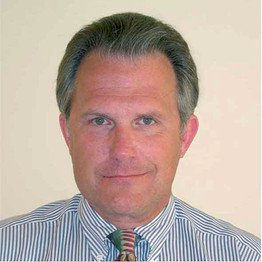Originally published on Advisor Perspectives by Knut A. Rostad
The Wall Street Journal remembered Warren Phillips, who retired as chairman of the Dow Jones Corporation in 1991 and passed away on May 10 at the age of 92. The glowing editorial and op-ed by Phillips’ successor, Peter Kann, are testimony to Phillips’ 44-year year career at the Journal.
They also remind me of the deep connection between journalism and fiduciary advice.
Kann wrote in his obituary about Phillips, “Whatever the position and title, his primary focus was always journalism. Warren regarded publishing a great newspaper as a sacred trust whose ultimate mission was public service. This was well before today’s era of fake news and the ubiquitous blending of news and opinion. To Warren, news and opinion were separate ‘courses,’ like meat and dessert, and news journalists should have no agenda beyond serving their readers and the broader public with honest and reliable information.”
The Journal editorial opens, “Our favorite story about Warren Phillips concerns his meeting in the 1970s with Henry Kissinger and then Journal editorial page editor Robert Bartley. Its shows that Phillips … was to his bones a newsman and defender of independent journalism even under political pressure.”
Forget the Journal’s editorial views. (i.e., The Journal’s myopic views on the defeated DOL Conflict of Interest Rule were flat-out wrong.)
The point is that journalism and fiduciary advice serve critical public roles. They’re integral to the success of our market economy and democratic republic. They fulfill these public service roles in private sector, for-profit capacities. At their best as professionals, journalists and fiduciary advisors practice their craft with the highest standard of objectivity, competence and integrity.
Substitute journalism’s tradition of separation between news and opinion with the securities industry’s struggle in recent years separating advice and sales. Then add to this the idea that a great newspaper is a public trust and that journalists should have no agenda – except to serve readers and the public with honest and reliable information.
Kann closes his tribute underscoring journalists’ fiduciary duties: “Phillips believed that the Journals’ news coverage should be fair and as free of bias as humanly possible.” He’s also channeling the Supreme Court’s landmark case, SEC v Capital Gains Research. Here the Court affirmed that the Investment Advisers Act of 1940 carried a fiduciary duty and then used very similar language to underscore the role of objectivity.
The Court noted an industry association code of ethics included that an investment adviser, “should continuously occupy an impartial and disinterested position, as free as humanly possible from the subtle influence of prejudice.”
RIA trade groups and custodians say their advisors have, “fiduciary fatigue.” They’re tired of the never-ending battles in Washington. They’re tired of the uncertainty. After all, it’s been a decade since the Obama administration re-started the fiduciary debate.
Fatigue is understandable, as is wishing for a final resolution. But, and this is key to what separates sales rules from fiduciary principles, a final resolution will be elusive because free markets and free thought are always under attack. Defending fiduciary and first amendment principles is eternal. Thank you, Warren Phillips, fiduciary evangelist.

by Knut A. Rostad
President of the Institute for the Fiduciary Standard
Knut A. Rostad, MBA, is the co-founder and president of the Institute for the Fiduciary Standard, a nonprofit formed in 2011 to advance the fiduciary standard through research, education

